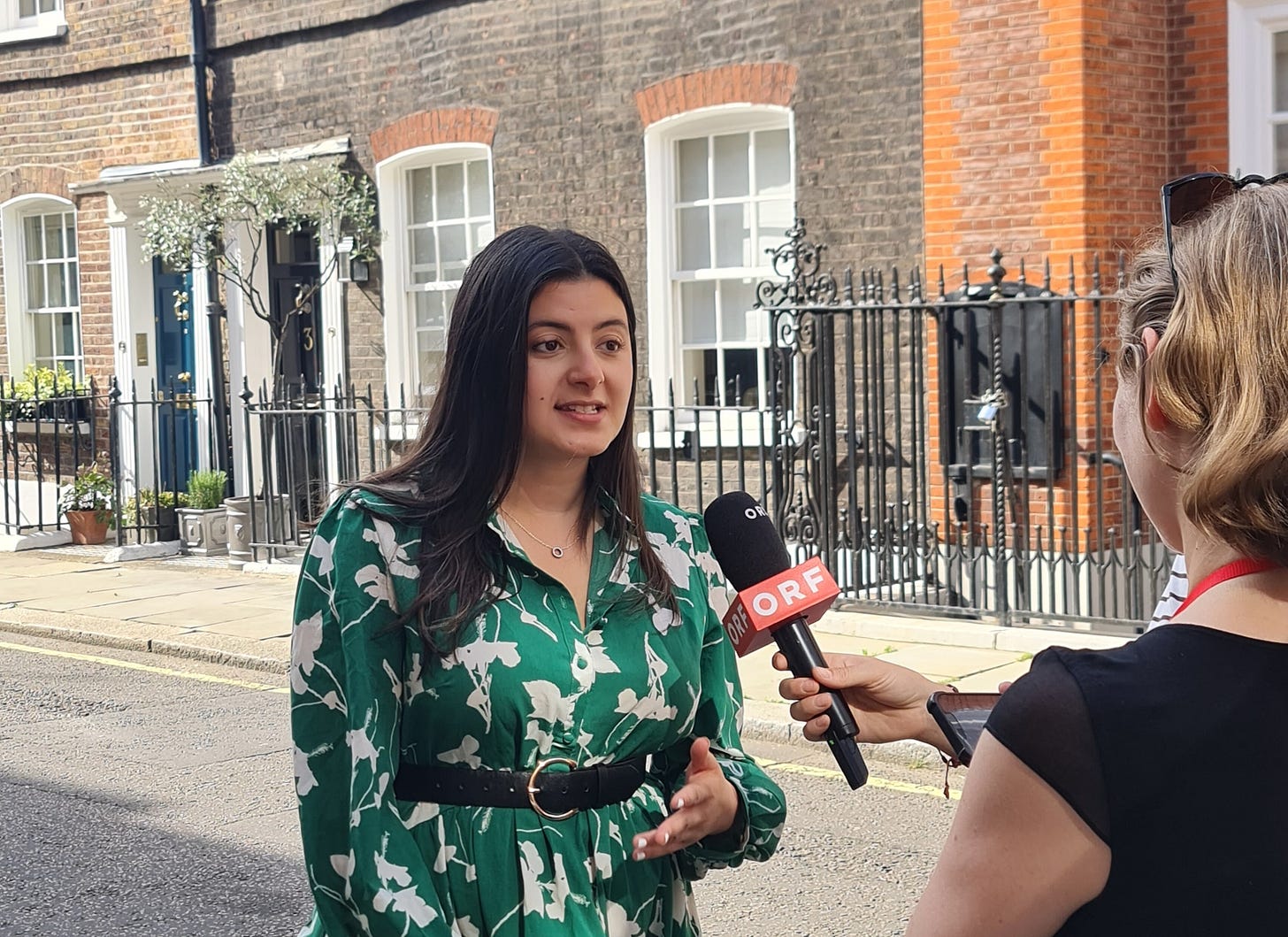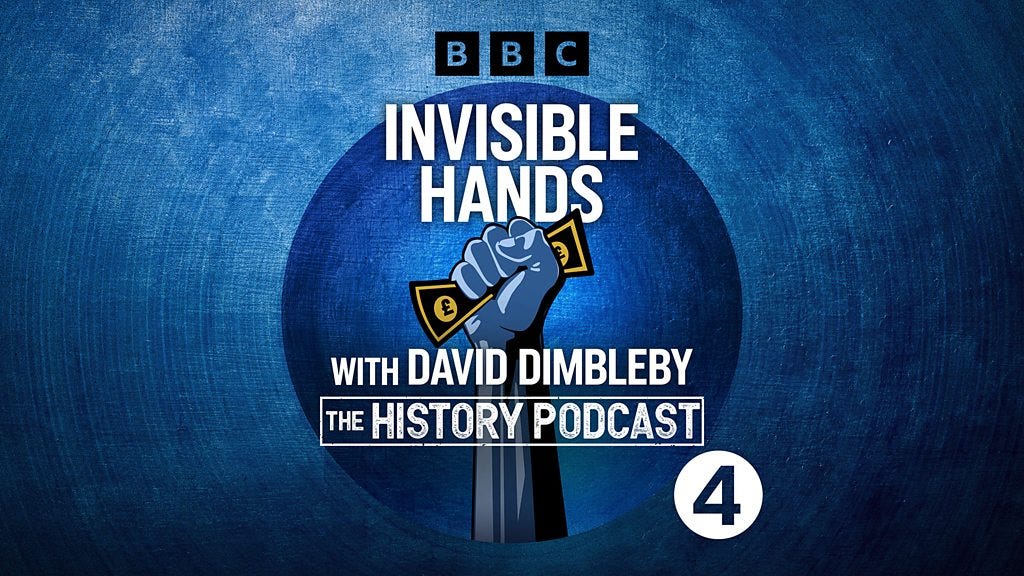Trump: mea culpas 100 Days In
Plus: Why we should scrap the sugar tax & the Iberian blackout
In today’s newsletter:
Trump’s first 100 days and mea culpas
Why we should scrap the sugar tax
DOGE Vs Afuera
Should all new homes install solar panels?
and more….
I have recently read two interesting “mea culpa”-style articles about the early days of the second Trump presidency: “What I Got Wrong about Trump” by Richard Hanania, and “I Owe the Libertarians an Apology” by Noah Smith.
By “mea culpa”, I don’t mean accounts by former Trump supporters who now regret their decision: as far as I know, neither of them was ever a Trump supporter. Rather, Hanania simply used to believe that a second Trump term would not be very different from the first one, and Smith used to believe that criticisng free-marketeers was a better use of his time than warning of government overreach à la Trump.
Hanania argues that the first time round, there still was such a thing as a Republican establishment, which Trump was not really part of, and which constrained him. Those constraints are now gone. What we are witnessing now, from his tariff chaos to his disregard for the rule of law and independent institutions, is the “real” Trump - a Trump surrounded by loyalists.
The problem, however, is not simply with Trump’s personality. Rather, this is what populism looks like. Populism is the idea that “the elites” are corrupt, while “the people” are pure and noble. The populist bypasses established institutions, and speaks directly to The People. In such a system, loyalty to the leader is more important than competence or professional authority, because loyalty to leader is, by extension, loyalty to The People.
Smith, meanwhile, has realised that what we are seeing now is what a post-neoliberal world looks like in practice. And he doesn’t like it.
By his own admission, he has focussed too much on the theoretical limitations of free-market economics, assuming that the alternative would be an ultra-competent altruistic government which intervenes in the economy in wise, selective and strategic ways. He has therefore held neoliberalism to much higher standards than the likely alternatives.
But it is not just Trumponomics that drives him to despair: he is equally dismayed by the more socialist-leaning segments of the progressive Left.
As the self-declared community spokesman of the neoliberal community, I am hereby officially accepting Smith’s apology. I have never had a problem with Smith, who, as far as critics of neoliberalism go, is one of the more fair-minded ones. But I have been wondering for a while why left-liberals and centre-leftists like Smith spend so much time criticising neoliberalism. Yes, like any philosophy, neoliberalism has its limits, and as with any philosophy, some of its adherents get overexcited and take things a bit too far. But given where we currently are, and where we are likely to go in the near future, focussing on the risk of “too much neoliberalism” seems bizarre to me. It is as if you were lost in the desert, and your main worry was that if you find an oasis, you might end up drinking too much water, and get overhydrated.
Maybe one day, neoliberalism will be so popular that there really will be a non-trivial risk of taking it too far. If so - that will be a good day.
Kristian Niemietz
Editorial Director
P.S. The best way to never miss out on IEA work, get access to exclusive content, and support our research and educational programmes is to become a paid IEA Insider. For a limited time only, new paid subscribers will receive a copy of Dr Steve Davies’ book Apocalypse Next: The Economics of Global Catastrophic Risks for free.
Offer ends at the end of May!
IEA Podcast: Director of Communications Callum Price, Executive Director Tom Clougherty, and Energy Analyst Andy Mayer discuss the blackouts in the Iberian peninsula, London’s housing crisis and Trump’s first 100 days, IEA YouTube
Scrap the Failed Sugar Tax
Responding to the Government's consultation on the soft drinks industry levy, Dr Christopher Snowdon, Head of Lifestyle Economics at the Institute of Economic Affairs, said:
"The sugar tax has been such a dramatic failure that it should be repealed, not expanded. It has been costing consumers £300 million a year while childhood obesity rates have continued to rise. To claim it has been a success on the basis of a hypothetical reduction of one calorie a day is absurd. Sugar taxes have never worked anywhere. What happened to Starmer’s promise to not raise taxes on working people?"
Chris Snowdon’s comment on the sugar tax has been quoted in the Times, the Independent, the Express, the Guardian, LBC, the Telegraph, Shropshire Star, Cambridge Independent, STV News, and Daily Business.
Communications Manager Reem Ibrahim discussed the sugar tax on the Austrian Broadcasting Corporation.
News and Views
Invisible Hands, The History Podcast, BBC Radio 4
BBC Radio 4 have created a podcast series detailing the history of an idea – free market capitalism – in the UK. The first episode details how a chicken farmer, Antony Fisher, became motivated to found the Institute of Economic Affairs.
Episode 1 - The Chicken Farmer
Episode 2 - The Mad Monk
Episode 3 - Selling the Silver
Episode 4 - The Big Bang
Episode 5 - The Lucky Gambler
Episode 6 - There is No Alternative
We need not a British DOGE, but a British Afuera!, Director of Communications Callum Price, ConHome
Labour to toughen up debanking laws after Farage row, Head of Political Economy Kristian Niemietz quoted in The Telegraph
Kristian Niemietz, of the Institute of Economic Affairs (IEA) think tank, said the majority of people who are debanked are “probably innocent”.
He added that they have probably engaged “in some financial practice that a money launderer might also engage in, such as frequent and irregular cash deposits, or overseas transactions.”
Councils must start treating potholes as the pressing menace they are, Strategic Partnerships Manager Matthew Bowles, The Express
Solar panels must be fitted on all new homes from 2027 in net zero push, Energy Analyst Andy Mayer, CityAM
Andy Mayer, energy analyst at the Institute of Economic Affairs, said: “The person most relevant to deciding what should go on a new home is the person buying it, not a Minister in the grip of an ideological crusade.
“If the Government’s claims about savings of £1,000 per household a year were credible, there would be no need for a mandate.”
Strong-arming savers won’t fix our personal finances, Stakeholder Relations Manager Matthew Prescod, CapX








Good piece again Kristian. What we see with Trump is not a good use of democracy. It’s anything but democratic. It’s an Oligarchy. He uses democratic elections as an ‘in’ with promises to the downtrodden majority of population to stoke up their fears and prejudices to get elected and then to basically anything he wants under that heading of non establishment to enact his way with impunity. He ingratiates himself with self confidence and proclaimed himself leader of the world and it seems Pope too! The problem with Trump is he is not at all bright! He’s too clever for his own good and has no ideas at all! He just makes proclamations. Based on bigotry and his own deluded ideology. We in the UK have a hierarchy and not yet an Oligarchy. It’s a trident of the commons, the Lords, and the Royal Family. We think it’s a democracy but it isn’t. It too hides behind a democratic flag of convenience just like Trump. It’s not neoliberalism it’s a hierarchy. All heads are a ‘loaded’ dice. The commons are full of pre chosen people loyal to the heads. The Lords are non elected old Lords of the manor! Chosen, not elected. And the Royal Family are hereditary old Kings and Queens who have that system to protect. No one person in charge but a loyal group of pre chosen executives who’s job it is to protect that outdated system(s). Take the Brexit vote? A modern example of democracy in action yet, we left the EU on a vote that was not over 50% of the total possible electorate! That enormous decision was allowed when less than 50% wanted to leave! The non voters did not count! That is not democracy, that’s a hierarchy in action. We are still hanging on to old ways instead of giving all the easy way to vote, by pushing a button from the comfort of their own homes! We don’t need to be governed in a Oligarchy or a hierarchy. We can make decisions much easily. Just like money. We allow the mega rich to hold most of the money for years on end. They say 95% of money is held by the top 5% of people! That’s not democratic! We are devoid of all that money each month, that’s why every country in this planet is short of it! Or rather their people are short of it! We need all 100% of money passing through all 100% of people, every month! Thats how an economy will work. Until that day comes we will always be the downtrodden majority. Put a ‘spend by date’ on all money electronically. Keep all money electronically in their individual currencies and within their own country. That will take holding money away from those who do it now. And will return flow to the majority who desperately need it…. Is the majority! Be rich with what you spend and buy and not the money itself! We can do that now, we couldn’t before computers.